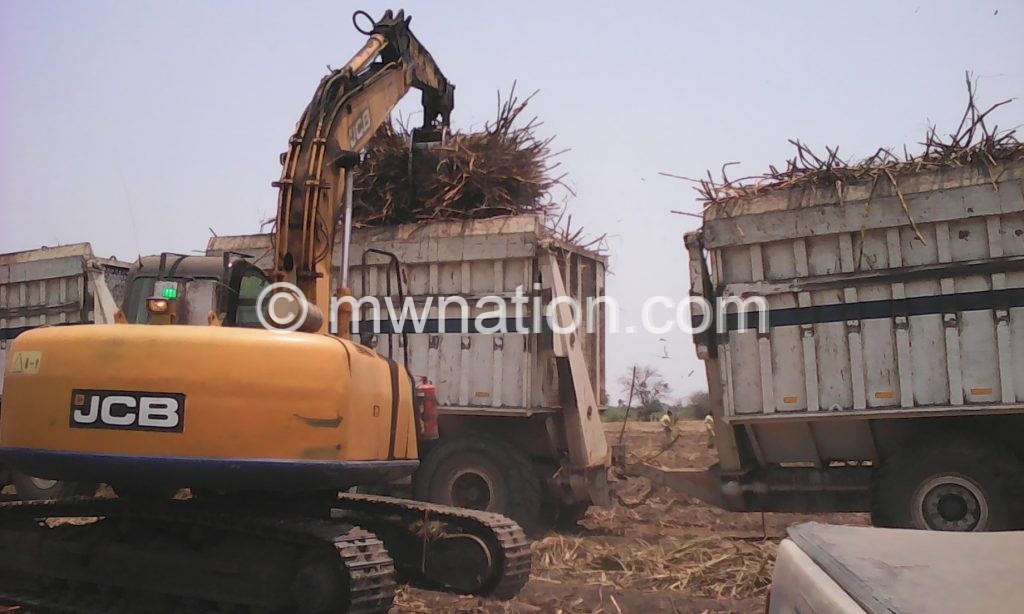Cane cutters race for quality sugar
The sweltering heat had everyone in the covered section of Kalulu Stadium at Nchalo in Chikwawa perspiring profusely.
This was not one of the red-carpet occasions known to attract very important persons (VIPs), but it mattered no less.

Sugar cane cutters drawn from the vast plantations of Dwangwa in Nkhotakota and Nchalo gathered here.
They had participated in a sugar cane cutting competition in the morning and this was the time to get the rewards according to what they yielded that morning.
“The winner of our grand prize of a motorbike is Amos Wilson,” it was announced through the public address system.
For a while, everyone forgot the cold drink they were sipping and raptured into a song of praise for the victor.
Sugar cane cutting is a common occupation in the country’s cane fields of Dwangwa and Nchalo. But the rewards for doing this dirty job were nothing more than a salary or a wage.
But something bigger was up for grabs last month.
Concern Universal had pumped in K6 million towards buying assorted prizes for this year’s winners.
It was the first time Concern Universal was involved, so were the motorcycles, 10-feet iron sheets, bicycles, solar lamps and bulbs, plasma television sets and refrigerators.
According to Concern Universal project manager Humphrey Nxumalo, the competition was designed to promote quality sugar cane cutting and acknowledge the contribution of the cutters who are often considered second-class workers.
“This should improve the quality of the final sugar product and the lives of the sugar cane cutters,” he said.
“When quality sugar cane cutting is promoted, there is a chance that the farmers will make more money because there is no sugar cane left in the field as is the situation when the sugar cane is poorly cut.”
Nxumalo said the sugar cutting practice they promoted also had a chance to solve the challenges of inefficiency the sugar cutting industry has been facing, a situation that has affected quality.
He said Concern Universal run the competition in an industry highly associated with Illovo Sugar (Malawi) Limited to promote farming and harvesting practices that increase the farmers’ earnings.
“We took interest in sugar cane cutting because of the nature of the job. Usually, sugar cane cutters return from the field dirty, thus they are not regarded in the same line as other workers in the chain,” added Nxumalo.
The competition was organised through the companies contracted to cut sugar cane around Illovo’s Dwangwa and Nchalo sugar factories.
Besides the individual awards, there were also prizes for the contractors.
Wilson is from Kasinthula in Chikwawa and had won other prizes apart from the grand prize.
“I am happy. The competition is just very tight. Last year, I emerged number five and that shows the cut-throat competition such exercises are usually associated with,” he said.
“I do not know how to ride a motorcycle and I have not decided whether to use it as a taxi or for hiring purposes. Since it is mine, I can always decide how to use it.”
Wilson said during such competitions, cutters are encouraged to harvest the whole cane without leaving some stumps in the field.
Controller of agriculture services responsible for institutions in the Ministry of Agriculture, Irrigation and Water Development, Grey Nyandule Phiri, said the country would benefit more if the harvesting methods promoted under the competition is upheld,
“More sugar sold means more taxes realised,” he said. “When bad sugar cane cutting practices are encouraged, there are losses on both quality and quantity because some of the cane is left in the field. Therefore, these people should be encouraged to use the efficient methods.”
He reckoned that efficient practices improve both the quality and quantity of sugar.
“More taxes generated means more jobs are created and it is the people that are competing that need the jobs. If they do it the right way, the desire to engage machines in the process is minimised and jobs are guaranteed. Help get as many people as possible employed.”





